Filter by
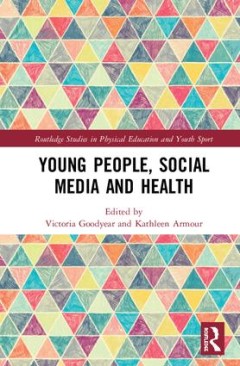
Young people, social media and health
The pervasiveness of social media in young people’s lives is widely acknowledged, yet there is little evidence-based understanding of the impacts of social media on young people’s health and wellbeing. Young People, Social Media and Health draws on novel research to understand, explain, and illustrate young people’s experiences of engagement with health-related social media; as well as…
- Edition
- -
- ISBN/ISSN
- 9781351026987
- Collation
- xvii, 231p. : ill.
- Series Title
- -
- Call Number
- 610.2850835 YOU y
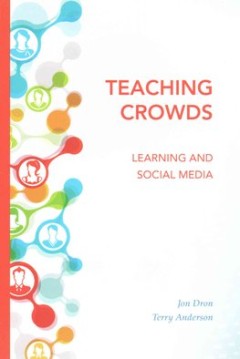
Teaching crowds : learning and social media
Within the rapidly expanding field of educational technology, learners and educators must confront a seemingly overwhelming selection of tools designed to deliver and facilitate both online and blended learning. Many of these tools assume that learning is configured and delivered in closed contexts, through learning management systems (LMS). However, while traditional "classroom" learning is by…
- Edition
- -
- ISBN/ISSN
- 9781771990004
- Collation
- xv, 353p. : ill.
- Series Title
- -
- Call Number
- 371.33 DRO t
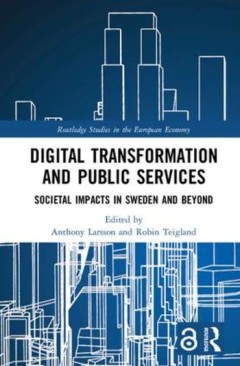
Digital transformation and public services : societal impacts in Sweden and b…
Through a series of studies, the overarching aim of this book is to investigate if and how the digitalization/digital transformation process affects various welfare services provided by the public sector, and the ensuing implications thereof. Ultimately, this book seeks to understand if it is conceivable for digital advancement to result in the creation of private/non-governmental alternatives …
- Edition
- -
- ISBN/ISSN
- 9780429319297
- Collation
- xxii, 353p. : ill.
- Series Title
- -
- Call Number
- 361.609485 DIG d

Traditions in German-speaking mathematics education research
This open access book shares revealing insights into the development of mathematics education research in Germany from 1976 (ICME 3 in Karlsruhe) to 2016 (ICME 13 in Hamburg). How did mathematics education research evolve in the course of these four decades? Which ideas and people were most influential, and how did German research interact with the international community? These questions are a…
- Edition
- -
- ISBN/ISSN
- 9783030110697
- Collation
- viii, 278p. : ill.
- Series Title
- -
- Call Number
- 370 JAH t

Drawing education : wordwide! : continuities - transfers - mixtures
As a cultural technique, drawing was firmly anchored in the realities of European society from early modern to modern times. Based on this fact, the present volume asks for the first time about the significance of drawing and drawing education in other cultural areas. Indigenous methods of drawing and sign-learning in Arabic, Asian, Latin American, North American and European countries are addr…
- Edition
- -
- ISBN/ISSN
- 9783947732302
- Collation
- vii, 323p. : ill.
- Series Title
- -
- Call Number
- 370 NAN d
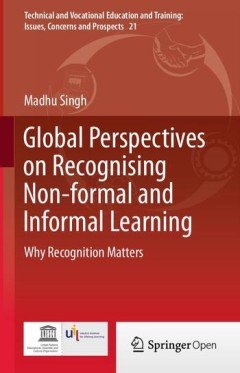
Global perspectives on recognising non-formal and informal learning : why rec…
This book deals with the relevance of recognition and validation of non-formal and informal learning education and training, the workplace and society. In an increasing number of countries, it is at the top of the policy and research agenda ranking among the possible ways to redress the glaring lack of relevant academic and vocational qualifications and to promote the development of competences…
- Edition
- -
- ISBN/ISSN
- 9783319152783
- Collation
- xix, 220p : ill.
- Series Title
- -
- Call Number
- 370.11 SIN g
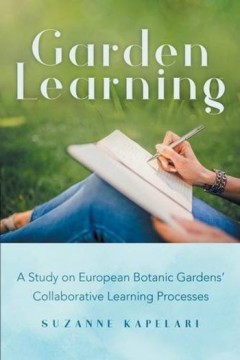
Garden learning : a study on European botanic gardens' collaborative learning…
"From 2007-2013 the European 7th Framework Program Science in Society (FP7) funded a multitude of formal and informal educational institutions to join forces and engage in alternative ways to teach science—inside and outside the classroom—all over Europe. This book reports on one of these projects named INQUIRE which was developed and implemented to support 14 Botanic Gardens and Natural Hi…
- Edition
- -
- ISBN/ISSN
- 9781909188662
- Collation
- vi, 185p. : ill.
- Series Title
- -
- Call Number
- 370 KAP g

Shadow libraries : access to educational materials in global higher education
How students get the materials they need as opportunities for higher education expand but funding shrinks.From the top down, Shadow Libraries explores the institutions that shape the provision of educational materials, from the formal sector of universities and publishers to the broadly informal ones organized by faculty, copy shops, student unions, and students themselves. It looks at the hist…
- Edition
- -
- ISBN/ISSN
- 9780262535014
- Collation
- -
- Series Title
- -
- Call Number
- 070.5 SHA s
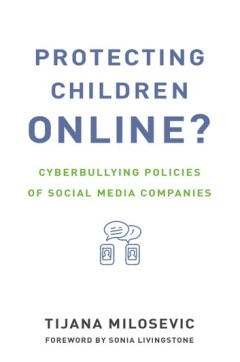
Protecting children online? : cyberbullying policies of social media companies
This book investigates regulatory and social pressures that social media companies face in the aftermath of high profile cyberbullying incidents. The author’s research evaluates the policies companies develop to protect themselves and users. This includes interviews with NGO and social media company reps in the US and the EU. She triangulates these findings against news, policy reports, evalu…
- Edition
- -
- ISBN/ISSN
- 9780262344104
- Collation
- xv, 276p. : ill.
- Series Title
- -
- Call Number
- 302.30285 MIL p

Open access
A concise introduction to the basics of open access, describing what it is (and isn't) and showing that it is easy, fast, inexpensive, legal, and beneficial.The Internet lets us share perfect copies of our work with a worldwide audience at virtually no cost. We take advantage of this revolutionary opportunity when we make our work “open access”: digital, online, free of charge, and free of …
- Edition
- -
- ISBN/ISSN
- 9780262517638
- Collation
- xii, 241p. : ill
- Series Title
- -
- Call Number
- 070.57973 SUB o
 Computer Science, Information & General Works
Computer Science, Information & General Works  Philosophy & Psychology
Philosophy & Psychology  Religion
Religion  Social Sciences
Social Sciences  Language
Language  Pure Science
Pure Science  Applied Sciences
Applied Sciences  Art & Recreation
Art & Recreation  Literature
Literature  History & Geography
History & Geography